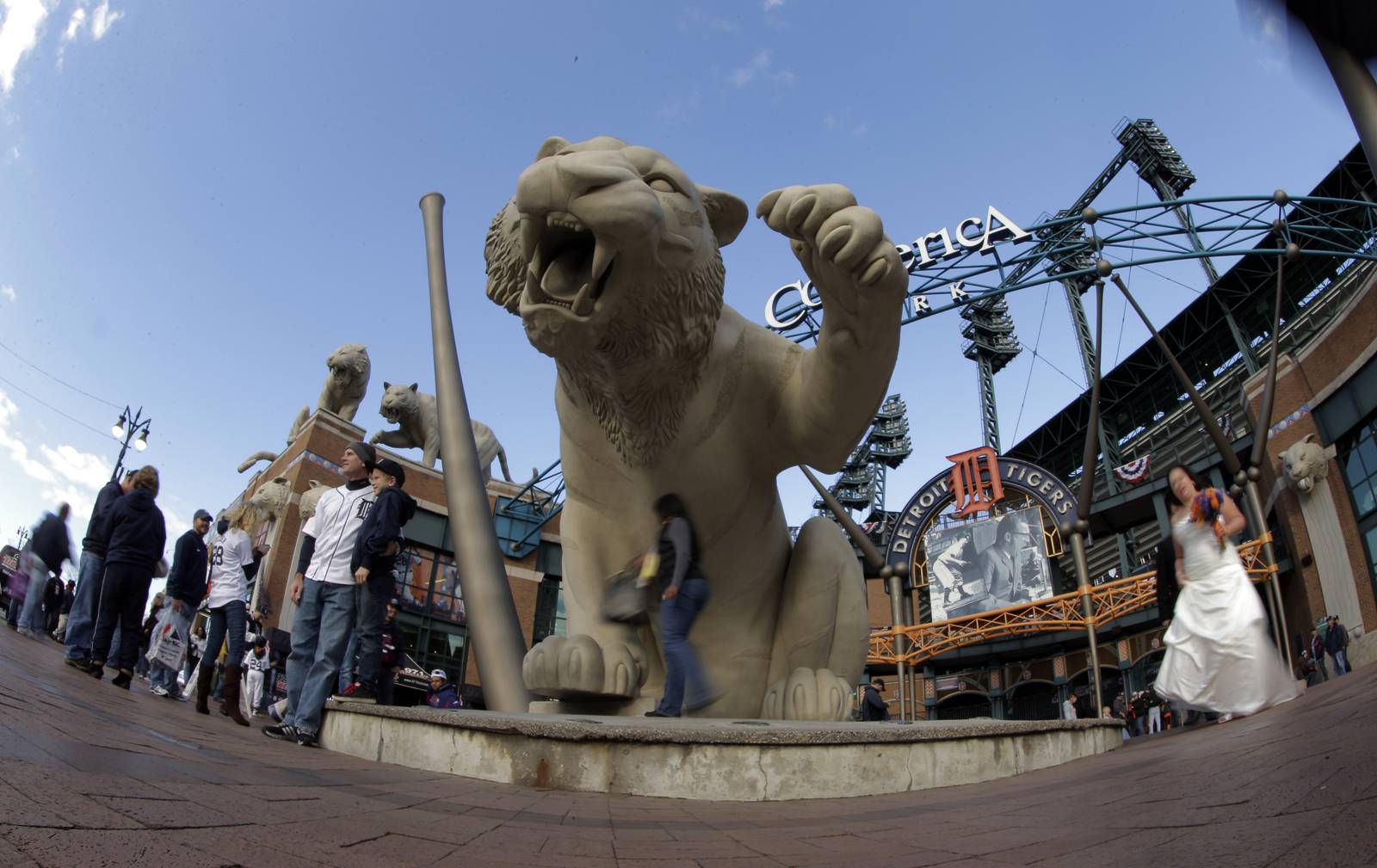Sporting Chances
Sporting Chances
Detroit may be weathering tough economic times, but business is still booming for its major league sports teams. In the last 12 months, nearly 4 million fans—that’s 6 times the city’s population—have come downtown to cheer for the NFL’s Lions, the NHL’s Red Wings, and major league baseball’s Tigers.

The Lions, owned by Martha Firestone Ford ’46 (see sidebar), drew more than half a million fans to Ford Field last season; the Red Wings sold out all 41 games at 20,000-seat Joe Louis Arena; and the city’s oldest franchise, the Tigers, sold more than 2.4 million tickets at Comerica Park.
That means a lot of cash. And team officials and many fans and city residents say the civic pride generated by the Lions, Tigers, Red Wings, and Pistons is also playing an important role in the city’s recovery. “Detroit is a big-time sports town,” says Rod Wood, who was named president of the Lions last year. “We have rabid fans for all four of our teams, and when the teams do well, it lifts the morale of the whole city.”
The teams’ economic impact isn’t limited to the fans who buy the tickets, Wood says. “In addition to the 65,000 people who attend our games, a lot of others come downtown on game days to be close to the festivities in our restaurants and bars. Many of our fans are from the suburbs, and once they come downtown and see what it has to offer, they return to enjoy what they’ve discovered.” The same is true, Wood says, for Tigers and Red Wings fans.
The teams contribute to the morale of Detroiters in many ways, and all four franchises have extensive community outreach programs. Every Tuesday during the Lions’ season, Ford Field becomes a farmers market, dubbed “Meet, Greet, and Eat,” where vendors sell fresh produce, and some Lions players are on hand to promote the value of good nutrition. And during the off-season, Lions players are involved in local charities, many of them in the city’s most economically disadvantaged neighborhoods. “Many of our players have found their own ways to give back to Detroit,” Wood says. “Matt Stafford (the Lions’ starting quarterback) and his wife support an inner-city school and have raised money to build new athletic fields.”
Few Detroiters question the contributions the city’s sports teams are making in their community, but some are wondering about the price taxpayers are paying. While the teams are owned by wealthy families, funding for the stadiums in which they play are partially funded through public financing. A new arena for the Red Wings, owned by Ilitch and his wife, Marian, for example, is being funded in part by $250 million in public money in a deal that was was struck the same week the city declared bankruptcy.
Many Detroit residents share an opinion aired by HBO comedy host John Oliver, who recently devoted a segment of his show to spotlight the public subsidy of the new Red Wings arena. “Sports teams are successful businesses with wealthy owners,” Oliver said on the show, “yet they still get our help.”
"Detroit is a big-time sports town. When the teams do well, it lifts the morale of the whole city.”
Some state lawmakers echoed the sentiments of many skeptical Detroiters when the funding scheme for the arena was announced. “Now that the city’s actually in bankruptcy those concerns are even more justified,” former state senator Gretchen Whitmer said. “We’re all supportive of new development in Detroit. But it’s difficult to tell the residents of the city that this is more important than public safety or street lights.”
Red Wings spokesperson Jennifer Arapoff says Detroit-based businesses have been awarded $320 million in contracts for the arena construction. And Arapoff notes the team’s parent company, Ilitch Holdings, Inc., is building restaurants, shops, offices, and housing in a 50-block area adjacent to the arena. The company estimates the arena and surrounding development projects will generate more than $2 billion for the city’s economy.
Wood, the Lions’ president, says he’s convinced the teams are worth the public investment. He says he sees evidence of Detroiters’ love for the Lions and its other major league franchises daily as he interacts with fans and fields requests for information and player appearances at community events. “I’m originally from Michigan; I’m a lifetime Lions fan,” he says, “but until I got this job, I didn’t fully appreciate just how important the teams are to the community.”